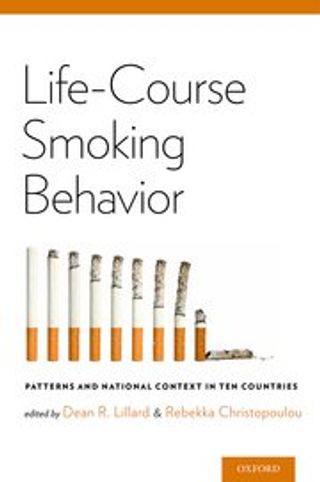?
Smoking in Russia and Ukraine before, during, and after the Soviet Union
Despite efforts to curb tobacco use, global tobacco addiction remains as strong as ever. Smoking rates are declining very slowly in advanced countries, and they are increasing in the developing world. Yet, researchers still do not fully understand what drives smoking decisions.
Life-Course Smoking Behavior presents smoking trajectories of different generations of women and men from ten of the world's most visible countries, with nation-specific representative samples spanning more than eighty years of recent history. To inspire hypotheses on the determinants of smoking behavior, the authors place these data in economic, political, social, and cultural contexts, which differ greatly both across countries at a particular time and over time in a given country.
Though significant research has been conducted on smoking statistics and tobacco control policies, most descriptions of smoking behavior rely on cross-sectional "snapshot" data that do not track individuals' habits throughout their lifespan. Lillard and Christopoulou's work is a unique and necessary text in its comparative life-course approach, making it a long overdue complement to the existing literature.
In book
